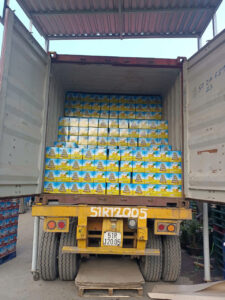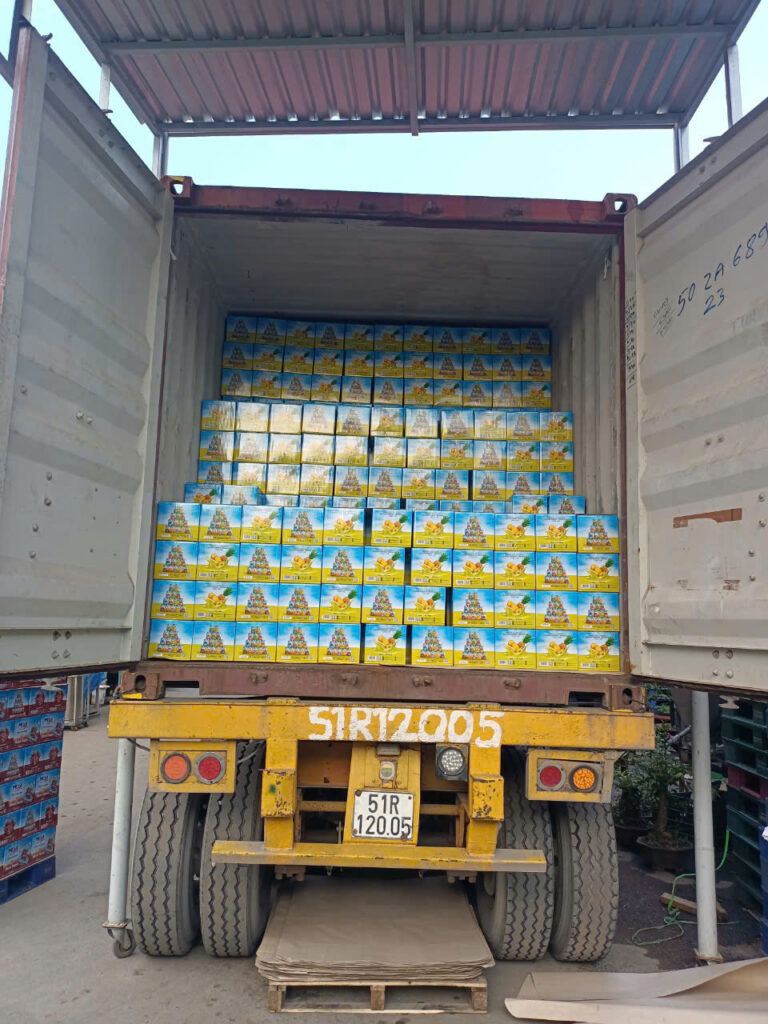Vietnamese beverages manufacturers have transformed their industry by investing over 300 million USD in advanced Aseptic technology production lines. The COVID-19 pandemic created challenges that reduced operations to below 80% capacity. Yet the industry contributes by a lot – about 60 trillion VND each year to the state budget.
The sector’s adoption of breakthroughs shows through 12 cutting-edge Aseptic technology lines. These lines help products stay fresh for 12 months without refrigeration. On top of that, environmentally responsible practices remain crucial as leading manufacturers cut plastic waste by 78,000 tons from 2014 to 2023.
Vietnamese beverages manufacturers accelerate their growth through modern manufacturing investments and strict quality standards. Their product breakthroughs and environmentally responsible approaches reshape the scene of this industry’s future.
Investment in Modern Manufacturing
Vietnam’s growing importance as a regional production hub has attracted big beverage companies to invest heavily in manufacturing. PepsiCo plans to build two new plants powered by renewable energy with a USD 400 million investment. One of the region’s largest foreign-invested projects is the beverage facility in Long An province, worth over USD 300 million.
New facility developments
Heineken Vietnam leads an ambitious USD 540 million factory expansion project in Ba Ria-Vung Tau province. The company wants to increase yearly output by 500 million liters and reach 1,600 million liters total capacity by October 2025. SABECO has built an innovative research and development center at its Nguyen Chi Thanh brewery. The center features a fully automated miniature brewery with complete production capabilities.
Automation adoption rates
Drink manufacturers have widely embraced advanced production techniques through automation. Coca-Cola Vietnam’s success story shows this well – they developed 60 automated processes using Power Automate in just six months. This change means their sales process now takes minutes instead of hours. About 94.7% of companies now see automation as crucial and have changed their production methods.
Production capacity expansion
Vietnamese beverage makers keep growing their production capabilities. Suntory PepsiCo Vietnam’s new facility in Long An will produce 800 million liters yearly when it opens in 2025. Uniben has added two PET lines that each make 36,000 containers hourly. They plan to add a third line by late 2024.
The manufacturing sector benefits from several key advantages:
- Modern industrial parks with top-tier facilities and infrastructure
- Government support through tax breaks and cheaper land lease fees
- Strong technical expertise backed by detailed training programs
The industry faces some challenges. About 99% of food and beverage businesses deal with operational problems, and half of them don’t manage finances well. Companies are responding – 68.4% now use modern technology in their production and distribution. They’ve started using IoT sensor systems to check warehouse conditions, track inventory, and monitor quality immediately.
Quality Standards and Certifications
Vietnamese beverages manufacturers now measure their quality assurance through strict certification processes that meet international standards. Their dedication to excellence shows in how they adopt globally recognized certifications.
International compliance achievements
Major manufacturers have earned multiple international certifications to guarantee product quality and safety. HAlos , a leader in the industry, has gotten significant certifications like ISO, KOSHER, BRC, HALAL, ORGANIC (USDA, EU), FSSC 22000, BSCI, and SMETA. These certifications allow them to distribute products to over 200 nations worldwide. Similarly, Interfresh maintains HACCP, ISO, and FDA certifications.
SABECO shows this commitment through its specialized Research and Development Center that works together with European partners to use state-of-the-art technology and processes. Their technical staff becomes skilled at global brewing expertise through intensive Brew master training in Germany.
Food safety measures
Vietnamese government regulations ensure complete food safety through several key measures:
- Decree 15/2018/ND-CP that streamlines regulatory procedures and lines up with international trade standards
- Mandatory compliance with Food Safety Law 2010 and specific technical regulations for beverage products
- A digital food safety system launched with South Korea to boost monitoring and management
Manufacturers must now declare food safety compliance on Vietnam’s multimedia websites themselves. Authorities check up to 5% of total food imports randomly each year. The Vietnam Center for Food Safety Risk Assessment (VFSA) develops food standards that coordinate with international requirements.
Quality remains a priority through strict supervision at every production stage. SABECO trains its quality control teams each year to spot production irregularities. This integrated quality management approach has brought results. Vietnamese brands have won over 54 international awards since 2019.
Product Innovation Leadership
Vietnam’s beverage sector keeps reaching new heights as manufacturers turn to natural ingredients and unique flavor combinations. Rita Food & Drink Co. sources fruits only from prominent Vietnamese farms to ensure premium quality and authentic taste.
Natural ingredient focus
Vietnamese drink makers embrace their local agricultural treasures. VGreen makes zero-degree ginger beer that helps with weight loss and fights cancer. Interfresh, a 15-year-old producer of preservative-free beverages, specializes in fresh fruit juices and natural coconut water.
Unique flavor combinations
Creative spirit shows through the sector’s distinctive flavor profiles. WANA Beverage now includes state-of-the-art combinations like sparkling coconut water, basil seed drinks, and fruit milk beverages. Sông Cái Distillery stands out by crafting Vietnam’s first gin with 16 botanicals from northern highlands. They use unique ingredients like green turmeric, jungle pepper, and heirloom pomelo.
Functional beverage development
Vietnamese manufacturers develop health-focused drinks to meet consumer needs. These functional beverages contain:
- Bioactive compounds that target physical performance and mental clarity
- Probiotics to improve gut health
- Adaptogens to reduce stress
- Collagen-infused formulations to enhance skin beauty
Through collaboration with Tan Hiep Phat, Takasago Vietnam launched Zero Degree Green Tea with Thai Nguyen tea leaves. This partnership shows the industry’s steadfast dedication to creating health-oriented, naturally sourced beverages that appeal to millions of consumers.
The sector’s commitment to new ideas goes beyond individual products. Research and development teams work to improve existing formulations and develop new offerings. This approach has made Vietnamese drink manufacturers leaders in the functional beverage market, especially among younger and middle-aged consumers who seek wellness-focused options.
Sustainability Initiatives

Major drink manufacturers in Vietnam are becoming game-changers with environmentally responsible initiatives. Coca-Cola Beverages Vietnam now uses bottles made from 100% recycled PET for its 300ml products. This change has reduced their need for virgin plastic.
Eco-friendly packaging solutions
Tan Hiep Phat’s lightweight bottle design has been a soaring win. The company cut bottle weights from 27g to 13.2g between 2013 and 2018. This reduction saved 78,000 tons of plastic waste. Nestlé Vietnam made a bold move by switching from plastic to paper straws for its Milo brand. This change eliminated about 700 tons of disposable plastic each year.
Waste reduction programs
Beverage companies are building resilient recycling ecosystems through strategic collaborations. Nine major companies founded the Packaging Recycling Organization Vietnam (PRO Vietnam). Their main goal is to collect all packaging materials for recycling by 2030. Duy Tan Plastics Recycling factory has recycled more than 1.3 billion bottles within Vietnam.
Energy efficiency measures
Companies are making use of groundbreaking energy-saving solutions in their operations. URC Hanoi’s detailed efficiency measures have cut annual energy use by 2% to 7%. These changes include:
- LED bulbs and solar-powered lighting installation
- Variable frequency drives for cooling systems
- CIP process optimization to save water and steam
Water conservation efforts
HEINEKEN Vietnam has invested 30 billion VND over four years to improve water resource management in three critical river basins. Suntory PepsiCo’s ‘Mizuiku – I Love Clean Water’ program has reached over 2.6 million people and taught water conservation to more than 141,000 primary students.
Vietnamese beverage makers’ commitment to sustainability goes beyond single projects. Nielsen reports that 86% of Vietnamese consumers are willing to pay more for products with biological or recycled packaging. Manufacturers continue to learn about innovative ways to reduce their environmental impact through advanced technologies and strategic collaborations.
Conclusion
Vietnam’s beverages manufacturing sector shows evidence of what happens when breakthroughs meet excellence. Major players have poured over USD 1.2 billion into state-of-the-art facilities. These companies follow international quality standards like ISO, HACCP, and FSSC 22000 strictly.
Vietnamese manufacturers do more than just produce drinks. They source natural ingredients and create unique beverages that combine traditional flavors with modern wellness trends. Companies like VGreen and WANA Beverage demonstrate this approach through their product lines.
The industry’s growth strategy prioritizes sustainability. Manufacturers have cut plastic waste by 78,000 tons and launched complete recycling programs. Water conservation projects have helped millions of people, which proves the sector’s dedication to responsible manufacturing.
Vietnamese beverages manufacturers have built a strong foundation to grow steadily. Modern manufacturing capabilities combine with strict quality controls, product development, and environmental protection. This combination positions them perfectly to expand in domestic and international markets.
